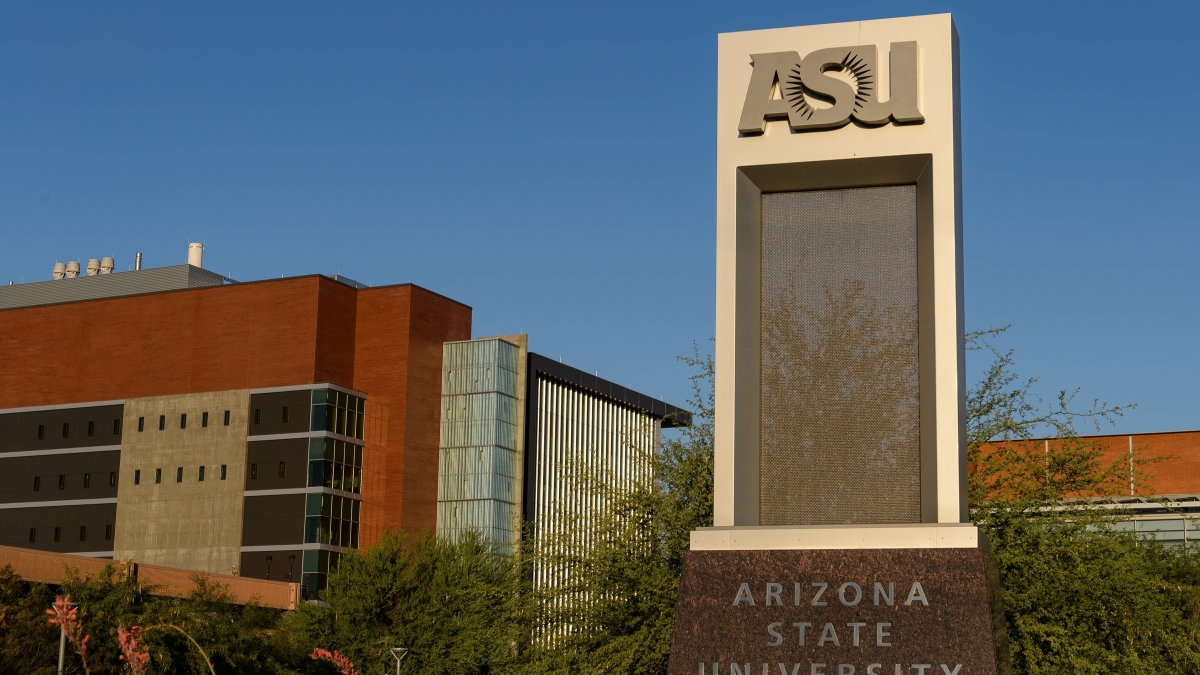Higher education in the United States must intensify the pace of innovation to keep up with changes in the workforce, according to Michael Crow, president of Arizona State University.
He would grade higher education institutions a C-minus for keeping up with the changes demanded by our economy.
“Colleges will need to educate across the entire spectrum of society — on campus and off campus, over a lifetime — and we’re not prepared to do that,” said Crow, who spoke on a panel titled “Next Generation College” at the Reagan Institute Summit on Education in Washington, D.C., on Thursday. The panelists talked about how to widen access to higher education, especially to adults in the workforce who never got a degree.
“We stopped innovating,” he said, noting that the earliest versions of higher education were inventive and adaptive, such as small colonial colleges chartered by governments, land-grant institutions started during the Civil War, and community colleges, the public system in California and research institutions launched in the 20th century.
“The class of institutions we need going forward isn’t fully fleshed out yet,” he said.
Crow said that universities will have to join together to meet the needs of students.
“Why don’t we form leagues among universities that don’t have anything to do with athletics so we can have the greatest programs in the world built around alliances?” he said.
ASU is already in the University Innovation Alliance with 10 other institutions, including Purdue University, to share best practices and work to improve outcomes such as completion.
Mitch Daniels, the president of Purdue, was also a speaker on the panelOther panelists were Congresswoman Susan Davis of California; Bill Hansen, CEO of Strada Education Network; and Ted Mitchell, president of the American Council on Education.. He predicted that not every institution will survive the changes that are needed.
“The history of what we now call disruption will tell you that it’s very difficult for the incumbent business or industry to make changes fast enough to fend off any new technology or business model innovation,” he said.
“If you look at higher education, it is a sitting duck for the same sort of cataclysm that happened to newspapers and record stores.”
Daniels noted that the value of higher education is being questioned.
“We’ve lost a lot of rigor in higher education. One reason the credential, the diploma, is now being challenged is that over time, employers and others in the world beyond found that it wasn’t, as they thought, proof of readiness for work or even citizenship.”
Crow was more optimistic.
“We have to understand that there will not be less learning, less knowledge or less need to know. We’ll be trying to understand things we can barely understand now,” he said.
“There will be new types of institutions and new alliances. Everything is accelerating.”
Watch a video of the panel discussion.
More Arts, humanities and education

ASU workshop trains educators, professionals from marginalized communities in disaster science
As devastating as hurricanes can be to anyone caught in their paths, they strike marginalized communities even harder.To address this issue, a fund named for a former Arizona State University…

ASU’s Humanities Institute announces 2024 book award winner
Arizona State University’s Humanities Institute (HI) has announced “The Long Land War: The Global Struggle for Occupancy Rights” (Yale University Press, 2022) by Jo Guldi as the 2024…

Retired admiral who spent decades in public service pursuing a degree in social work at ASU
Editor’s note: This story is part of coverage of ASU’s annual Salute to Service.Cari Thomas wore the uniform of the U.S. Coast Guard for 36 years, protecting and saving lives, serving on ships and…
